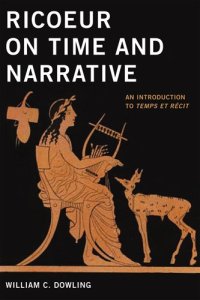
Ebook: Ricoeur on Time and Narrative: An Introduction to Temps et récit
Author: William C. Dowling
- Tags: French, European, Regional & Cultural, History & Criticism, Literature & Fiction, Philosophy, Aesthetics, Analytic Philosophy, Consciousness & Thought, Criticism, Eastern, Epistemology, Ethics & Morality, Free Will & Determinism, Good & Evil, Greek & Roman, History & Surveys, Logic & Language, Medieval Thought, Metaphysics, Methodology, Modern, Modern Renaissance, Movements, Political, Reference, Religious, Social Philosophy, Politics & Social Sciences
- Year: 2011
- Publisher: University of Notre Dame Press
- Edition: 1st Edition
- Language: English
- pdf
“The object of this book,” writes William C. Dowling in his preface, “is to make the key concepts of Paul Ricoeur’s Time and Narrative available to readers who might have felt bewildered by the twists and turns of its argument.” The sources of puzzlement are, he notes, many. For some, it is Ricoeur’s famously indirect style of presentation, in which the polarities of argument and exegesis seem so often and so suddenly to have reversed themselves. For others, it is the extraordinary intellectual range of Ricoeur’s argument, drawing on traditions as distant from each other as Heideggerian existentialism, French structuralism, and Anglo-American analytic philosophy. Yet beneath the labyrinthian surface of Ricoeur’s Temps et récit, Dowling reveals a single extended argument that, though developed unsystematically, is meant to be understood in systematic terms.
"The scholarship in William C. Dowling's Ricoeur on Time and Narrative is impeccable; Dowling knows Ricoeur inside out. He highlights Ricoeur's most important arguments, presents them in a limpid, concise language, and links them to the relevant nineteenth- and twentieth-century philosophical developments. Dowling's book provides us with a lucid, intelligible version of Ricoeur's major work, one that will be of considerable significance to philosophers, historians, and literary theorists." —Thomas Pavel, Gordon J. Laing Distinguished Service Professor of French Literature, and the Committee on Social Thought, University of Chicago